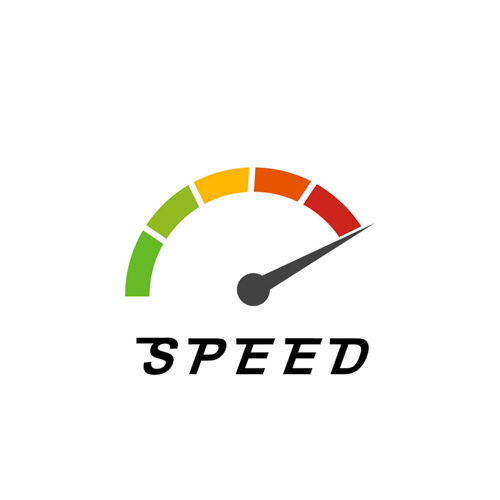Background
Never before had there been such a need to have a fast and efficient website as now. A relatively laidback attitude towards website speeds and usage in general got smashed by a rude awakening overnight. The reason was the sudden appearance of something so small, we can’t even see it with the naked eye. The result was dramatic – a changed world, forever!
5 months after the discovery of this tiny little ‘thing’ the CEO of Cloudflare announced a 50% increase in web traffic. Suddenly your website has changed from a ‘nice-to-have’ to your clients’ preferred way of doing business with you. Your customers now much rather order your services / products online than walk across your doorstep.
Combine this with the fact that research has shown that should your website not pop up within a second or two when accessed, the average buyer will move on to your competition’s site.
‘How can I speed up my website?’
You’re probably wondering ‘But what can I do to speed up my website? Can I get it to run faster? Is it going to cost me a fortune?’. The answers are ‘Quite a bit, yes and no’.
I was recently asking these same questions after moving my clients’ websites to a different host in order to save on hosting costs. My savings in hosting fees were fantastic but I grossly misjudged the loss in my clients’ website speeds.
The result was panic! Real panic! For a moment I saw myself moving all of the sites back (redfaced) to the original host – or spending lots of money to speed up the sites, which defeats the whole objective for the move. Typical yuppy that I am, I immediately started mining Mr. Google’s wealth of info.

Using a CDN
My research dug up a lot of suggestions and theories but the one sentence caught my attention: “A CDN can have a tremendous effect on your website speed’. That was for me! Relief resulted in action and let me state it categorically: it’s the best thing since sliced bread!
What is a CDN or ‘Content Delivery Network’? Cloudflare describes it best: it refers to a geographically distributed group of servers that work together to provide fast delivery of internet content.
How does it achieve this? Basically the most ‘static’ parts of your website pages get stored on servers closer to you than your website host. These can be scripts, images, partial pages or even whole pages. This static content is known as ‘cache’ and the process is known as ‘cacheing’ – you probably have been instructed to ‘Clear your cache’ before, right? That will clear cache in your browser but there are ways of clearing the cache right across the CDN.
When anyone enters your website’s url in your browser’s address bar, all of the site’s content does not have to be imported from your hosting server (tens of) thousands of kilometres away from you. Only the dynamic parts get transported all the way. The other parts are brought in from the CDN server closest to you. All the pieces of the puzzle get assembled together in your browser and wha-la! A beautiful web page gets displayed to you within a second or two – or even within split seconds! In the event of blogs which are static in content, the whole blog can get ‘cached’ at a CDN server close to you.
Cloudflare is probably the most popular company providing CDN services – for free! The cherry on the cake is that it implies increased security as well! You can get (paid) CDN services however, combined with other network services.
Optimizing your CDN
Just like anything else in the website world, CDN services can be managed and optimized (and combined with browser cacheing) but that’s a topic for another blog. Bottom line: if you are not using CDN services to speed up your website then you have room for improvement.
Maybe you’re already running your website on super-fast, expensive web servers so it’s not that relevant to you. For most of us hosting our websites on ‘shared’ servers (i.e. sharing the server with up to millions of other website owners) it is immensely relevant and important. A matter of life and death. Well, almost…
If your website speed is not impressive, use a CDN. It’s your first line of attack on a slow website speed. If you need some help with that then the contact form below is for you.

About The Author
I am Tobie Schalkwyk. I have been in IT Development from the days of XT and AT PC’s and I’ve spent the last 23 years of my corporate career in the building of an online banking website for one of SA’s major banks – a website that was rewarded numerous international awards as the best online banking system on the globe.
I now spend most of my effort in online digital marketing and WordPress website development. If you would like to follow my blogs – or you need to optimize your website / you need any other website services, kindly leave your contact details below and I will get in touch with you.
Hope to chat to you soon!

